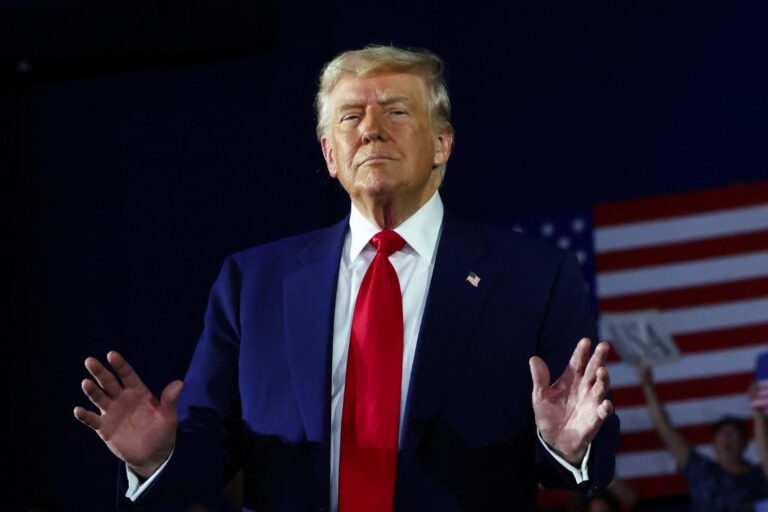India has reported that the United States has deported over 1,000 Indian nationals since January, highlighting ongoing challenges faced by immigrants amid tightening US immigration policies. The recent figures, disclosed amid heightened scrutiny of visa regulations and enforcement under the current administration, underscore the complexities in bilateral relations on migration issues. This development comes as both nations navigate diplomatic and legal frameworks addressing immigration and expatriate concerns.
India Raises Concerns Over Rising Deportations of Nationals by US Since January
India has officially expressed deep concerns over the significant increase in the deportation of its nationals from the United States since the beginning of this year. According to reports, more than 1,000 Indian citizens have been sent back to India amid tightening immigration policies and enhanced scrutiny at U.S. borders. This surge in deportations has sparked diplomatic dialogue between the two countries, as New Delhi seeks clarity on the process and conditions under which its citizens are being detained and deported.
Key points raised by Indian officials include:
- Demand for transparency: India urges the U.S. to provide detailed information regarding the grounds for deportation.
- Assurance of fair treatment: Ensuring the welfare and legal rights of deported nationals during detention and repatriation.
- Collaboration on immigration matters: Strengthening bilateral protocols to manage cross-border migration effectively.
| Month | Number of Deportations |
|---|---|
| January | 250 |
| February | 320 |
| March | 450 |
Impact of US Immigration Policies on Indian Immigrants and Bilateral Relations
Since January, over 1,000 Indian nationals have been deported from the United States, a figure that has sparked significant concern within both the Indian diaspora and governmental circles. The increase in deportations reflects a hardening stance under the Trump administration’s immigration policies, which emphasized stricter enforcement and prioritization of removal for those with criminal records or immigration violations. Many affected individuals are professionals and students, raising alarms about the broader impact on Indian immigrant communities and their sense of security.
These developments have reverberated beyond individual cases, affecting bilateral relations between the US and India. Indian officials have voiced apprehensions about the potential negative consequences on diplomatic ties, trade, and cooperation in sectors such as technology and education. Key points of tension include:
- Increased scrutiny on H-1B visa holders
- Delays and denials in visa processing
- Concerns over racial profiling and community impact
| Aspect | Impact |
|---|---|
| Deportation Numbers | 1,000+ Indian nationals since January |
| Visa Processing | Longer delays and higher rejection rates |
| Bilateral Trade | Potential slowdown due to immigration frictions |
| Community Sentiment | Growing uncertainty among immigrants |
Experts Suggest Policy Reforms to Address Deportation Challenges and Strengthen Diplomatic Dialogue
In light of the recent uptick in deportations of Indian nationals from the United States, experts are calling for comprehensive policy reforms aimed at mitigating diplomatic tensions and ensuring fair treatment of affected individuals. Key recommendations include streamlining visa procedures, implementing transparent deportation protocols, and enhancing support systems for those facing removal orders. Stakeholders emphasize that without such reforms, the ongoing situation risks further straining the bilateral relationship between the two countries.
To bolster diplomatic dialogue, experts suggest the following measures:
- Establishing a bilateral task force dedicated to immigration and deportation matters.
- Improving communication channels between US immigration authorities and Indian consular services.
- Introducing legal aid programs for deportees to navigate complex judicial procedures.
- Periodic reviews of deportation cases to ensure adherence to human rights standards.
| Policy Area | Proposed Reform | Expected Outcome |
|---|---|---|
| Visa Processing | Faster adjudication timelines | Reduced backlog, fewer wrongful deportations |
| Consular Coordination | Joint monitoring mechanisms | Enhanced transparency and trust |
| Legal Support | Provision of legal aid | Fairer representation for deportees |
| Human Rights | Mandatory case reviews | Protection of individual rights |
To Wrap It Up
As tensions persist over immigration policies and bilateral relations, India’s report of the deportation of over 1,000 nationals from the United States since January underscores the ongoing challenges faced by migrant communities. Both governments continue to navigate the complexities of enforcement and diplomacy, with the situation remaining closely watched by stakeholders on both sides. Further developments are expected as discussions on immigration and bilateral cooperation proceed.




